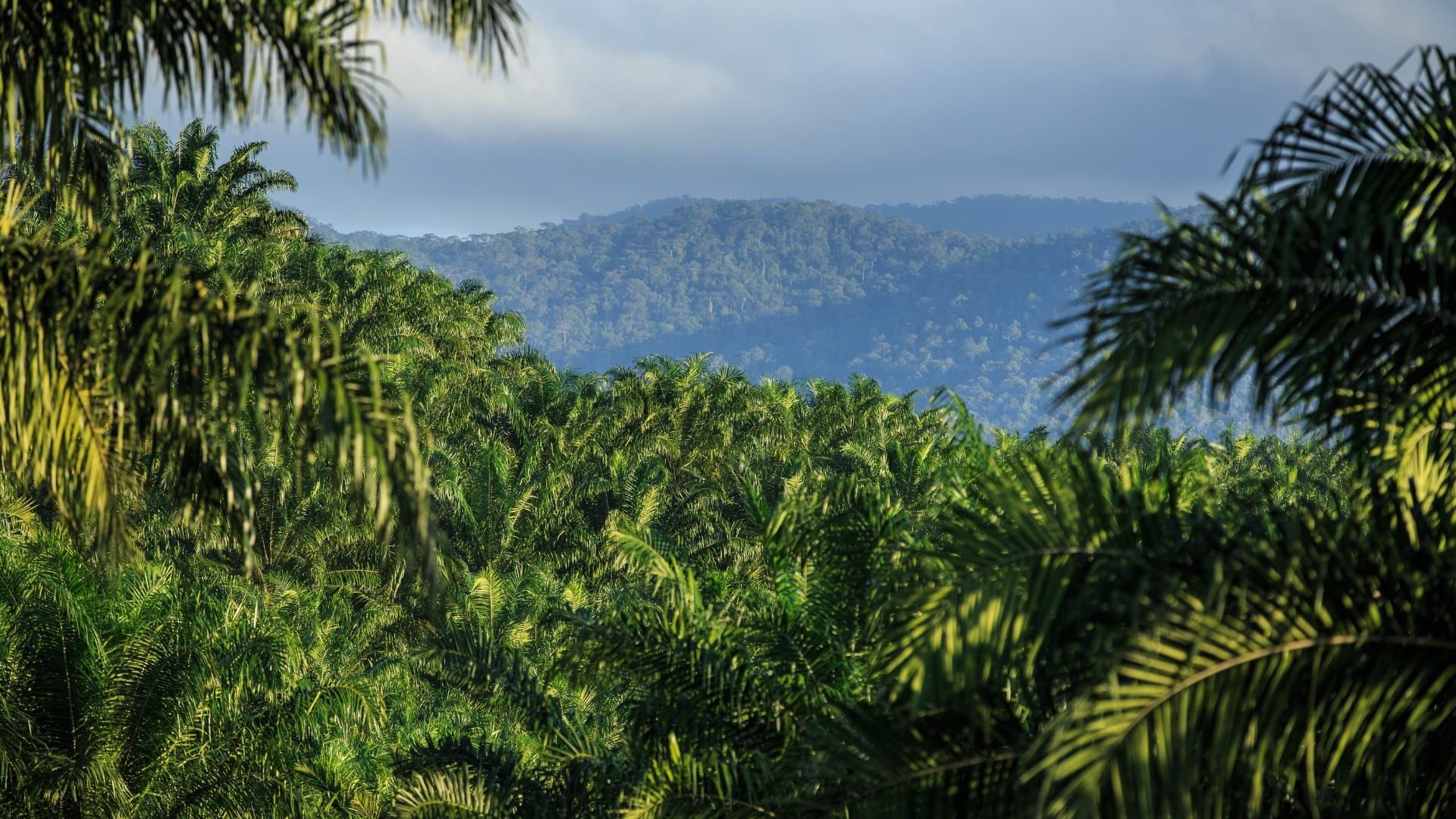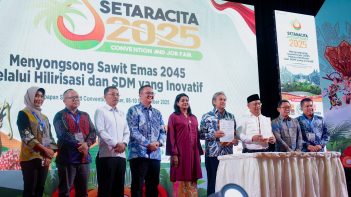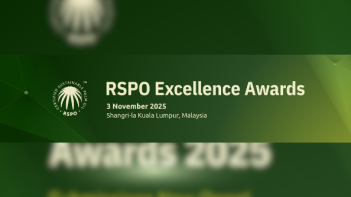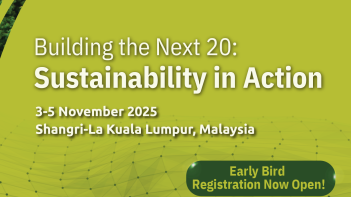| Click icon to download PDF |
Click link for translations
| Bahasa Indonesia | French | Dutch | Deutsch | Portuguese |
April 1, 2013: International – The Roundtable on Sustainable Palm Oil (RSPO), a multi-stakeholder organization and international certification scheme for sustainable palm oil, announces its extraordinary General Assembly of Members, to be held on April 25th 2013 in Kuala Lumpur, Malaysia.
The main resolution is for the adoption of the RSPO Principles & Criteria (P&C) for Sustainable Palm Oil Production 2013 submitted by the RSPO Executive Board which:
1. Calls upon RSPO members to vote for the adoption of the P&C 2013.
2. Requests members to whom the P&C apply to work towards implementation and certification of these revised P&C.
3. Requests members to whom the P&C do not apply directly to implement parallel standards relevant to their own organisation, which cannot be lower than those, set out in these revised P&C.
4. Requests members to whom the P&C do not directly apply to actively seek to promote sustainable palm oil and give support to those members engaged in implementing these revised P&C.
This is the first set of Principles & Criteria, Indicators and Guidance to be applied since November 2007 (P&C 2007). After five years of application by RSPO members, P&C 2007 was reviewed in 2012-2013 by the RSPO Principles and Criteria Review Taskforce. The revised Principles & Criteria (P&C) text was agreed by the P&C Review Taskforce, and endorsed by the RSPO Executive Board in February 2013. It will be presented to the multi-stakeholder membership at the upcoming Extraordinary General Assembly.
The review’s objective was to improve the relevance and effectiveness of the P&C for its members, and thus achieve the RSPO’s vision and mission. The review process followed ISEAL best practices, including two public consultations and four physical Taskforce meetings, the result of which is the revised RSPO P&C for Sustainable Palm Oil Production 2013: www.rspo.org/file/revisedPandC2013.pdf.
Consensus was reached on the revised P&C following months of intense and detailed discussions among the P&C Review Taskforce, which comprised growers from Malaysia, Indonesia and the Rest of the World (representing other Asian countries, i.e. Thailand and Cambodia, and Latin America, Africa and Oceania); supply chain representatives from Processors & Traders; Consumer Goods Manufacturers and Retailers; and Social and Environmental NGOs.
This is the first standard review in five years, and clarifies and improves on the previous P&C. Key changes to the P&C include:
· a new criterion requiring growers to minimize GHG emissions from new plantings
· a new criterion on ethical business practices, which requires companies to have and implement policies countering corruption
· a new criterion requiring that a policy on human rights is in place and communicated to the whole company
· a new criterion banning the use of forced labour
Jan Kees Vis, President of the RSPO Executive Board said: “Given RSPO’s commitment and mission to raise industry standards, while harmonizing a broad range of interests, the agreed text of the revised P&C is a conciliation based on the RSPO’s inclusive, consensus-driven, multi-stakeholder standard setting philosophy. The RSPO believes the revised criteria, indicators, and guidance will enhance the effectiveness and relevance of the P&Cs, and help address the sustainability challenges facing oil palm cultivation.”
The 2013 P&C review process was facilitated by ProForest, an independent consultancy that works with organizations, companies, governments and communities to find equitable solutions for the sustainable management of natural resources.
For more details on the extraordinary general meeting and the resolutions, please go to www.ga.rspo.org
– End –
15% of world's palm oil production is now RSPO certified
The current estimated annual production capacity of RSPO-certified sustainable palm oil is 8.2 million metric tonnes, approximately 15% of global palm oil production. Spread over 2.2 million hectares of certified area, about 48.2% of the world's current RSPO-certified sustainable palm oil production capacity comes from Indonesia, followed by 43.9% from Malaysia, and the remaining 7.9% from Papua New Guinea, Solomon Islands, Thailand, Cambodia, Brazil, Colombia and Ivory Coast.
For more information, please contact:
Contact for RSPO Secretariat:
Anne Gabriel
Communications Director
T:+603-22012053
Contact for Indonesia:
Desi Kusumadewi
RSPO Indonesia Director
T: +62 21 5794 0222
[email protected]
Contact for Europe:
Giovanni Colombo
T: +32 (0)2 231 50 19
[email protected]
Contact for India:
Arneeta Vasudeva
T: +91-124-4967316
[email protected]
Contact for China:
Peter Headden
T: (86 10) 5861 7597
[email protected]
Keep reading

RSPO x JaSPON Conference and Member Engagement Forum 2025 Spotlights Japan’s Sustainability Success and Market Growth
Call for Expression of Interest: Independent Investigation of a Complaint
Call for Expression of Interest: Mexico National Interpretation Task Force for 2024 RSPO Principles and Criteria (RSPO P&C) and Independent Smallholder (ISH) Standard

RSPO–APKASINDO Partnership to Boost Inclusive Growth, Certification, and Market Access for Oil Palm Smallholders

Open Letter to COP30 President: Integrating Forests and Biodiversity: A Policy Central to Paris Agreement Success

Bridging the Auditing Divide: Key Takeaways from the RSPO Assurance Forum 11

Extension of RSPO Excellence Awards 2025 Submission Deadline!





